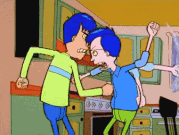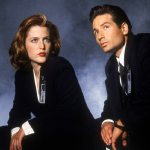|
Yeah, I wasn't suggesting I wanted to try it myself, only that it could be an interesting way to structure a book. Essentially yes, a series of short stories about the same character(s), but chronological and with a major plot that is always going on, too. Of course, this isn't some revolutionary concept, but I do think it would be interesting/fun to write a novel with the TV show format firmly in mind as inspiration.
|
|
|
|

|
| # ? May 12, 2024 14:12 |
|
Thank you for the responses peeps. I have the majority of the plot drafted out. I think I dumped my main character into 'writer' as profession because it's quite undefined and her actual work doesn't end up affecting the plot. I was just lazy and gave up a chance to understand the character more. I've now completely changed the two main characters to the woman who had been training in the medical field and the man she ends up investigating a senior police officer who disregarded her request for help when a pyromaniac was wandering around. This then lead to another person dying and the main character being set on fire and nearly killed as well. Feels better to me than 'you stole my life story about that nutjob nearly killing me and wrote a story about it'.
|
|
|
|
I'm so bored and tired of revisions and rewrites. drat. God. Augh. Can't I just go ahead and mail this poo poo out to agents, editors and publishers with a note, "you get the gist of it, right? you're going to make me change it anyhow, soooooo... here." I kid. I kid. Dammit.
|
|
|
|
So I've never critiqued a thing before, and I read the OP should I just hop into the Farm and try to critique stuff? I also was told to post here to discuss my latest Thunderdome entry. Mostly asking for advice on how to do certain things. What does bad critique look like? The story is here: http://forums.somethingawful.com/showthread.php?goto=post&postid=428187118#post428187118 My question about the story is I try to show in some paragraphs with past tense that this is how he sees himself and his actions, and in some I try to stay in present, and show this is how he is. Also, a lot of people think I'm making fun of the main character, but I'm not and while his life isn't great I'm not sure how to go about making people feel maybe less like this person is being put on display to be mocked. Are all of these just me making excuses for my bad writing? Or is what I'm saying coming across once you look for it? Turtlicious fucked around with this message at 01:44 on Apr 18, 2014 |
|
|
|
Agent's submitting novel to publishers. Fingers crossed.
|
|
|
|
Turtlicious posted:So I've never critiqued a thing before, and I read the OP should I just hop into the Farm and try to critique stuff? I also was told to post here to discuss my latest Thunderdome entry. Mostly asking for advice on how to do certain things. What does bad critique look like? There have been lots of good posts in here recently (on the last page even, come on people, read at least a few pages of the thread!) about how to crit, especially as a new critiquer: systran posted:"I got bored and stopped reading at x point is pretty useful and requires only that you can pinpoint when you lost interest Jonked posted:"I was confused about why Y happened" is pretty useful as well. Boring and confusing are going to be a pretty big chunk of what loses a reader. "This sentence seemed awkward" would just about cover the rest. Djeser posted:Even if you're not a good writer, you can give useful criticism, because not everyone who reads everything is a good writer themselves. You might not be able to comment on mechanics, but like people have said, pointing out places where you were bored, confused, or tripped up on the wording is helpful. crabrock posted:the biggest help I get is people telling me something didn't make much sense given the information I gave them, and telling me they'd like to see more background/description of ____. As to the second part of your question: Turtlicious posted:My question about the story is I try to show in some paragraphs with past tense that this is how he sees himself and his actions, and in some I try to stay in present, and show this is how he is. Also, a lot of people think I'm making fun of the main character, but I'm not and while his life isn't great I'm not sure how to go about making people feel maybe less like this person is being put on display to be mocked. The following is general advice, and not based on your specific story: "Is it there once you know what to look for?" isn't a particularly helpful way of thinking about writing. You have one opportunity to show the reader what to look for: the story itself. You don't get to come in afterwards and explain. I do think that explanations have a place when asking for critiques, because then readers can tell you if you accomplished what you were aiming for, but you have to keep firm in your mind that you must change the story to fix it. Explanations to change your readers' experiences are essentially excuses for bad writing. The writing has to stand on its own. ALSO: Congrats General Battuta, that is so awesome!
|
|
|
|
Dr. Kloctopussy posted:The following is general advice, and not based on your specific story:
|
|
|
|
blue squares posted:Yeah, I wasn't suggesting I wanted to try it myself, only that it could be an interesting way to structure a book. Essentially yes, a series of short stories about the same character(s), but chronological and with a major plot that is always going on, too. Of course, this isn't some revolutionary concept, but I do think it would be interesting/fun to write a novel with the TV show format firmly in mind as inspiration. Margaret Atwood's 'Moral Disorder' is a novella of sorts- or a short story collection where all the stories centre around one character.
|
|
|
|
John Dies At The End is a pretty drat popular book (on the internet) that is a series of episodic vignettes; Dreams Underfoot by Charles de Lint is absolutely a "tv series" of a book, with each chapter being an entirely self-contained story of whimsy in a novel of connected stories. It's been done a few times; it's still a super interesting thing to do that I'd love to try out one time because you're right, blue squares - it would (potentially) be fun on a bun.
|
|
|
|
It's just occurred to me that since human mind is such a poorly understood area, especially who's in charge, why they like something and not something else, why they do something and not something else, it may be sometimes unnecessary to ask for or provide extensive criticism, because something in your head from the outset decided that you don't like it, and then you're going to analyze in depth, and come to the conclusion that there's nothing wrong with the work after all, and yet many other readers who don't strain to articulate their thoughts will stop at that gut feeling of dislike or indifference, and that will be it for wide readership. Does this idea make me a post-modernist?
|
|
|
|
The ultimate, "I don't like the texture" excuse, reborn.
|
|
|
|
supermikhail posted:It's just occurred to me that since human mind is such a poorly understood area, especially who's in charge, why they like something and not something else, why they do something and not something else, it may be sometimes unnecessary to ask for or provide extensive criticism, because something in your head from the outset decided that you don't like it, and then you're going to analyze in depth, and come to the conclusion that there's nothing wrong with the work after all, and yet many other readers who don't strain to articulate their thoughts will stop at that gut feeling of dislike or indifference, and that will be it for wide readership. Your whole theory is stacked on the bit in bold, and the bit in bold is patently false. Have you never seen a pattern in the things you like or don't like? Even if you don't know for sure why you like something (and to be fair, we don't), the articulation is helpful. Even if you think you like something because A, when actually it's because B - if A and B happen to occur together a lot, your analysis will still help. But that's why you ask for lots of opinions on work, and then ask for - and ultimately defer to - your own.
|
|
|
|
I was referring to research indicating that our intentions to do something originate before we consciously decide to do something, and also fabrication of explanations for actions in split-brain patients. And the whole free will debate in general. Your subconscious may like/dislike something and not give any reasons to the conscious which then tries to justify the feeling the best way it can. I'm not trying to say that the whole idea of literary criticism is invalid, though.
|
|
|
|
Ahh, yes. I know about the studies about System 1 coming first in "will you eat this piece of chocolate cake?"-style studies with split-second decisions... does that same stuff apply to something whose value is built up over the course of 80,00(0) words? To an extent, yeah - if you put a different author's name on the front, it'll get judged differently by fans of theirs because of priming. And it can't be a coincidence that The Hero's Journey works over and over and over again - there must be some subconscious appeal in there. But I guess that's what makes trying to write better an interesting process. You're not quite sure how you get better, but you can usually tell better when you see it.
|
|
|
|
I was in a social neuro program for a while, so I've got some grounding in those studies. While they're very interesting, you're being pretty reductive about the problem (and it's worth noting that the old caricature of System 1 and System 2 is a gross oversimplification of a more complex model). Even if the 'why' of criticism is confabulated, the 'what' is still very useful information. Knowing where a reader's attention drifts and where you hold them rapt is vital. Your job as a writer is to figure out what input to deliver to create reader's trance and to evoke the emotional responses you're after. Even if your targets are black boxes, you can still learn to associate certain inputs with certain outputs - and to do that you need the outputs. It's also profoundly unlikely that the experience of reading is a purely automatic process and that a reader's critique has no diagnostic validity whatsoever in trying to figure out why they liked or disliked something. The whole free will debate in general would be resolved if everybody just recognized monist physicalist compatibilism as the correct solution.
|
|
|
|
What? My cautious suggestion is that "I like it" and "I don't like it", and "I like this place here", without giving (possibly subconsciously fabricated) reasons may be valid criticism, too, is all. Although since I've talked here about it I'm not even sure it is my suggestion. (Oh, irony!)
|
|
|
|
Reposting this here because this is the proper place to discuss it. Was curious how other participants in Thunderdome approached the work. I was thinking this would be my schedule for writing these from now on. Monday- Outlining Tuesday- First draft Wednesday- Spend time away from the work/Crit others. Thursday- First edit/Second draft Friday- Second edit Saturday- Third draft Sunday- Final edit and post. Or postpone everything until Sunday again and lose. Either work. leekster fucked around with this message at 06:07 on Apr 19, 2014 |
|
|
|
supermikhail posted:My cautious suggestion is that "I like it" and "I don't like it", and "I like this place here", without giving (possibly subconsciously fabricated) reasons may be valid criticism, too, is all. Although since I've talked here about it I'm not even sure it is my suggestion. (Oh, irony!) There is an (old, reductive, essentially right) idea that the subconscious (system 1) makes faster value judgements than the conscious (system 2), and that that conscious discourse mostly serves to put things you already thought into words, rather than thinking original thoughts. And there are professions that depend on like/don't like. In advertising that's often all we get, but it's still up to us to work out why. But it might be a pseudo-why - "over a study of 50 possible poster adverts, the things that got liked shared these characteristics". Even if the theory you then get isn't actually what's happening, if it helps you produce whatever does work for whatever technical reason, that's great. The only problem is the oversimplification that can come from the simplicity of a like/don't like input. I spend my life telling clients, so people seem to like the word 'delicious'. That doesn't that if you put it in, the ad gets better. Prose is the same thing, only moreso because you have more things interacting with each other. Or just defer to the Neil Gaiman quotation from a few pages back.
|
|
|
|
leekster posted:Reposting this here because this is the proper place to discuss it. Was curious how other participants in Thunderdome approached the work. Writing in a last minute frenzy works for me, but is a lot less useful for longer stuff. If you think that framework will work for you then go for it. More important is taking your crits onboard; read them all before editing your next story.
|
|
|
|
supermikhail posted:My cautious suggestion is that "I like it" and "I don't like it", and "I like this place here", without giving (possibly subconsciously fabricated) reasons may be valid criticism, too, is all. Although since I've talked here about it I'm not even sure it is my suggestion. (Oh, irony!) Well, it's valid in the sense that, yeah, if they didn't like it they didn't like it and no amount of hashing it out or making them understand your vision is going to change that. Of course, as a writer "I just didn't like it" is still frustrating and largely unhelpful because while it lets you know there's a problem it gives you no way to evaluate what the problem might be. It could be because there's some kind of deep structural problem in your story or the way you write, or it could be because that particular person knows somebody with the same name as your protagonist and hates their guts.
|
|
|
|
Also remember that humans are fundamentally social creatures. A way to bond and keep people social is to have things in common, whether it's delicious berries or stories about dragons getting degrees as veterinarians. People will each have a unique response to the same thing when it's presented to them, but they can be grouped into a general description. More people might prefer a book if it has vivid descriptions. Some like the vivid descriptions because it reminds them of similar experiences, others because it creates an experience they've never had. Either way the book has a following of people who just like 'vivid descriptions'. This is why it's useful to get whatever specificity out of a review that you can.
|
|
|
|
I have a question for the assembled. Is it a good idea to shift character perspectives once or twice mid-chapter, with a line break or something else to denote the change of perspective?
|
|
|
|
Why do you need to shift character perspectives in the middle of your chapter? Have you ever read a book that has executed that well? There's no hard set rule saying "don't do that" but unless you're a fuckin' phenomenal writer, I'd really rather not read that happening. One of my favorite recent reads, Life And Death Are Wearing Me Out by Mo Yan, has its final chapters start doing exactly that and it was a huge detractor from the overall experience. See, even if you telegraph it well, it's super awkward and annoying to get in the mindset of one character then suddenly deal with seeing things from someone else's perspective. If you need to get to another character's viewpoint, just change the chapter. It just reads real crummy.
|
|
|
|
leekster posted:Reposting this here because this is the proper place to discuss it. Was curious how other participants in Thunderdome approached the work. This sounds like a great idea, compared to how I normally do it. The Weekly TD Cycle Guilt - Friday - I really should sign up this week. I'll feel bad if I don't. I'll get an early start this time, I promise! Negotiation - Saturday - I'll just jot some ideas down, got plenty of time to write on Sunday! Anger - Sunday - Why the hell didn't I start writing sooner, this is pure crap with no time to edit! Acceptance - 30 minutes before deadline - Well, it's okay. Good enough, I guess. Not terrible! Despair - Monday Morning - Oh god why did I decide to reread my submission, it's so absolutely terrible. I hate myself and everyone is going to hate it and I'm sorry judges.  Repeat forever. Seriously though your plan might be great in an ideal world, but I'd focus on making sure you have time to put down your first edited draft and come back to it for more edits. That seems to be where most improvement comes from. Good luck with your plan!
|
|
|
|
General_Disaster posted:I have a question for the assembled. Whalley got into more detail, but in short: No. If you want to switch perspectives, start a new chapter. And think long and hard about whether perspective shifts are even necessary. If you have to keep switching willy-nilly, maybe you need to restructure the story.
|
|
|
|
General_Disaster posted:I have a question for the assembled. Are you writing a character-focused story, or do you need to move a story using multiple actors? Will your POV characters stay or are they just there to advance the plot? (say, you're writing a war novel where you need to portray a battle on several fronts) re: working on Thunderdome I try to have a basic germ of an idea by the day the prompt comes up. It can take me 1-2 days before I decide to write something. Ideally I can get the first draft done in one sitting (1-3 hours). I do this before bedtime so when I wake up the next day I get this niggling feeling of my story not being any good--which is actually a good thing to have. That's when I rewrite it. Sometimes I just throw the draft out and write a new story. That's okay--oftentimes you don't know what you really want until you write something and decide it sucks. My last story had 5 drafts, two of which were complete rewrites. I try not to start near the deadline because I always feel awful about it. That feeling when you run out of time and have to post what you have and people yell at you for your awful story which could have been made half-decent in a single rewrite... EDIT: I find it better to sign up late--I don't like the pressure of having to come up with something. If nothing comes to mind, then I could just not sign up and spare myself the grief. You don't lose points for not participating anyway! Lily Catts fucked around with this message at 02:25 on Apr 22, 2014 |
|
|
|
I'm writing something that has a character who has reasonably frequent phone calls to his office. I want them all to be one sided so we only hear him. Kind of for mystery of vagueness or whatever. I don't know, I just like it for what I think I'm doing now. But what do you think is the best for writing a decent length conversation that's one sided? I was thinking of: quote:"Hi Janet. [...] No, I'm still not there yet. [...] I left those on the side. All over the place lately. [...] GPS? [...] No, I don't think I have that on this phone. [...] Are you sure?" It seems a little inelegant. I don't know.
|
|
|
|
I kind of like it. I tried separating it into lines of opposing dialogue but that felt worse. Maybe I've just seen that exact format somewhere else, though I can't place it. Could even be a non-fiction journalistic device? Anyway, I say go for it.
|
|
|
|
PoshAlligator posted:I'm writing something that has a character who has reasonably frequent phone calls to his office. Balance it to be more interesting than frustrating to the reader. Imagine being at a small dinner with your friends and someone picks up the phone and speaks loudly. Which are the lines which you tune out on ("Hi Jane... yes... no.... ok, hold on... use the GPS... no press the right button... the RIGHT button...") and which are the ones that hold more interest (you make your own decision)?
|
|
|
|
PoshAlligator posted:I want them all to be one sided so we only hear him. Kind of for mystery of vagueness or whatever. I'd highly recommend not doing this unless you have a very compelling & specific reason (i.e. not just 'an air of mystery', but 'trying to hide fact XYZ'). I have seen this done successfully exactly once and it was in this story, where it has a purpose very different from what you're trying to do.
|
|
|
|
PoshAlligator posted:I'm writing something that has a character who has reasonably frequent phone calls to his office. I want them all to be one sided so we only hear him. Kind of for mystery of vagueness or whatever. I don't know, I just like it for what I think I'm doing now. edit: ^^^^ Beat me to it. He also did it in Infinite Jest. David Foster Wallace did this often: "blah blah blah blah blah" "Q" "blah blah blah" Of course, he was DFW.
|
|
|
|
Zesty Mordant posted:I kind of like it. I tried separating it into lines of opposing dialogue but that felt worse. Maybe I've just seen that exact format somewhere else, though I can't place it. Could even be a non-fiction journalistic device? Anyway, I say go for it. Yeah the "[...]" is a sort of journalistic thing. Thanks for the advice everyone. I think I do have a specific reason for it, but this is a long-form piece (probably a novel), so if it ends up not working I will just cut it. This character is one of two protagonists, but the main perspective is meant to be with the other one most of the time. So there's a sort of withholding of information from both that character and the reader that creates a little bit of interest. There is something about him not knowing how to use his GPS, but the extract I gave isn't really necessarily the sort of thing I will be doing with it. Mainly just curious about the presentation right now. My ideas change a lot when I'm getting them down, which I kind of like I think, so I don't really know exactly how it will turn out.
|
|
|
|
Ahhh, first person vs third person. Hello darkness my old friend. I'm having a writing dilemma that I think I've already solved but I thought worth sharing here, as I'm certain everybody has an opinion on it or advice to offer or similar experiences. So I got 70k words into a novel when I realised what had been nagging at the back of my mind all along: my protagonist's voice wasn't in the prose. I'd taken a lot of care over her dialogue and the dialogue of others, so her spoken voice was fine (for a first draft, at least) but other than in some emotionally charged judgements or descriptions of other people or her environment, she was completely missing from the prose, that elusive quality of 'voice' wasn't present, despite a conscious intention on my part to write in really close 3rd-person most of the prose has really me talking over her head the whole time. Whoops. After some gnashing of teeth overnight, I simply switched the current scene to 1st-person midway through, and my two beta readers say it's much, much better. I'm still left with this lingering feeling though, that writing in 1st-person exposes far too much inner psychological junk that isn't really relevant to the story, however much the protagonist wants to say it. But letting her just go seems to produce more readable, detailed, exciting, and involved prose, even if all she's doing is arguing in a dark room. Anybody else done this before? Or perhaps the other way around, from 1st to 3rd? What mental adjustments did you have to make either way? Conversely, have you written in close third and felt you pulled it off without accidentally pulling back too far?
|
|
|
|
Hungry posted:After some gnashing of teeth overnight, I simply switched the current scene to 1st-person midway through, and my two beta readers say it's much, much better. I'm still left with this lingering feeling though, that writing in 1st-person exposes far too much inner psychological junk that isn't really relevant to the story, however much the protagonist wants to say it. But letting her just go seems to produce more readable, detailed, exciting, and involved prose, even if all she's doing is arguing in a dark room. As someone who's working with the same problems I either have an informed or totally uninformed view, but take it as you find it: not everything about the story has to be relevant to the "story" (as plot), particularly in a novel. Lots of stuff in important emotional info that will make the things that are happening actually matter to the reader. In a general sense, it's useful for creating verisimilitude. But I think I know what you're worrying about - the danger of ending up with a whiny character. Fair enough - but I'd say that for draft stage, overexposition on the emotional side shouldn't worry you too much unless they're an active character, pushing forward, doing stuff. You have major edits incoming, but that's okay. Bottom line (in my view) is that if you've found an approach that is making the words come far easier, don't reject it at this stage.
|
|
|
|
General_Disaster posted:I have a question for the assembled. I am going to disagree a bit with the posters who responded to this (w/r/t advice based on avoiding it completely) since I am reading a book that does this well -- The Luminaries by Eleanor Catton. There's 13 main characters (book is like 800 pages) who all know part of a plot and the perspective will shift between them mid-chapter; the narrator will also make commentary on occasion. The perspective shifts are subtle. They're not really announced, but there's usually like a setup to it. So, say Walter is the current persepective and the narrative needs to shift to Thomas. They'd have a conversation and then something like "Thomas considered what Walter said and recalled that time back in England when he...[backstory/now Thomas' perspective]". There's mid-chapter breaks that come from minor scene changes and the chapters end on major scene changes to other other characters/topics. It also has some kind of rigid astrological structure I don't understand. Anyway, it's all highly structured and works. As a result, the only weird parts are the occasional short paragraph where we get the thoughts or background of one of the non-13 cast. Even with the omniscient narrator, it's strange. ultrachrist fucked around with this message at 18:28 on Apr 22, 2014 |
|
|
|
feedback from a story i submitted from 3 different readers:quote:* This definitely needs work. The violence is a bit drawn out and I got bored with it. There is a treatment of weapons as being animate, conscious objects that I don't like either. We are given a gritty, realistic world with strange weaponry for no apparent reason.
|
|
|
|
You would have to post a sample for us to decide whether there's any merit to the critique. Those certainly sound like they could be valid points, not simply a case of reader-writer incompatibility. e: you have a ton of posts in this thread so you probably know this already
|
|
|
|
crabrock are you writing an anime??
|
|
|
|
crabrock posted:feedback from a story i submitted from 3 different readers: Send me this
|
|
|
|

|
| # ? May 12, 2024 14:12 |
|
Anytime I get feedback, I consider the point being made, and THEN consider the source. If the person providing the crit isn't familiar, (or fond of) the genre I'm writing, I absolutely heed the grammar/style crits, but where they feel there's too much of a thing (that is a part of that genre) I take it with a grain of salt. Not saying I disregard it, but whole-heartedly ask myself if I'm trying to appeal to every person out there, or am I writing to my audience. And then? I'll quite often go a step furtherfarther and re-read a chapter from my favorite author in that genre. I'm doing horror/thriller, and Joe Hill and S. King break the poo poo out of a lot of common-sense rules. However, it's good to know they break the rules RIGHT, not just with disregard for the rule.
|
|
|



























